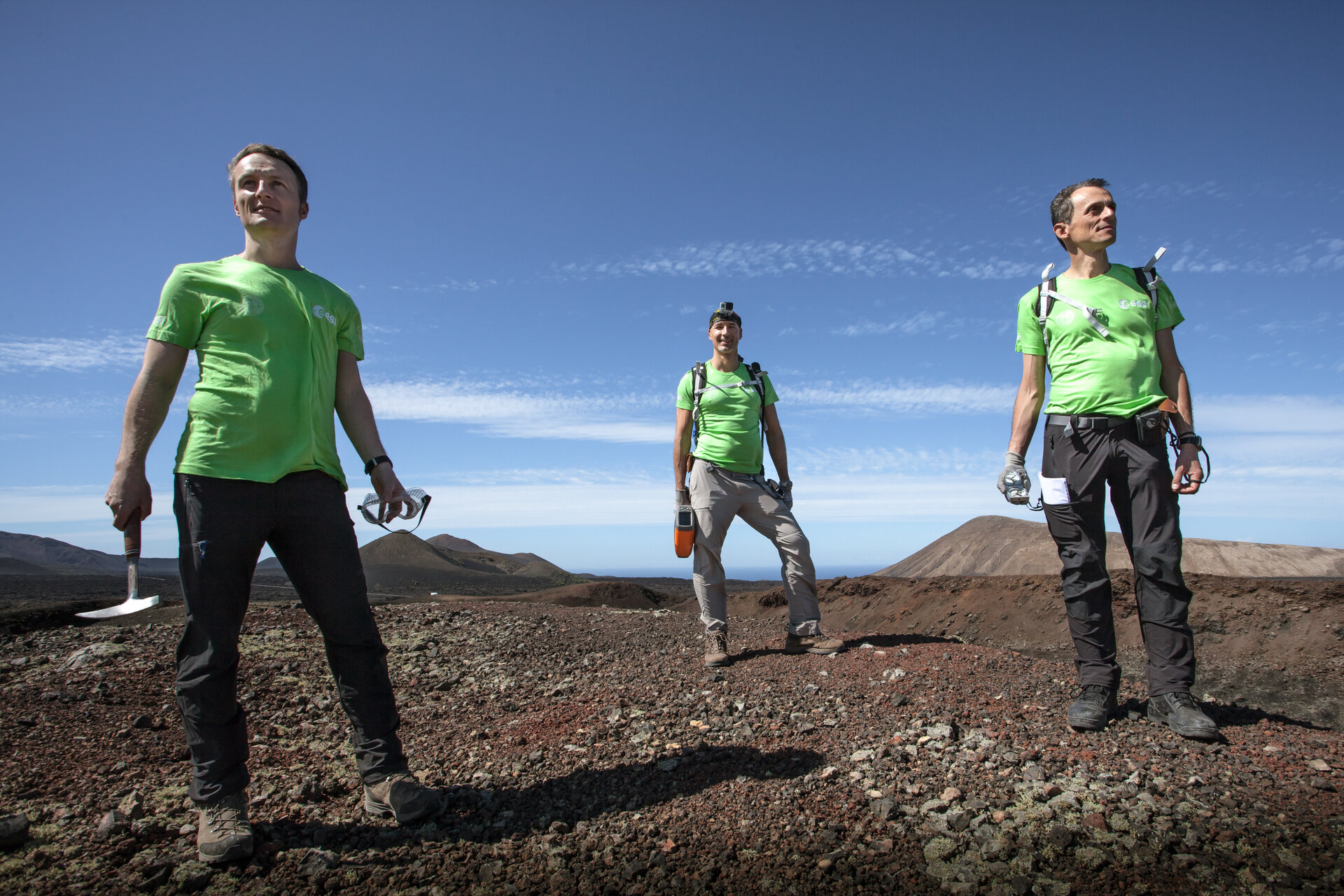Internship at the European Astronaut Centre (EAC), Cologne
The European Astronaut Centre is looking for a dynamic intern in the field of Electronic Fieldbook development (PANGAEA). The full-time internship is for six months, based at EAC near the historic city of Cologne.
Overview of the PANGAEA course
The training program PANGAEA (Planetary ANalogue Geological and Astrobiological Exercise for Astronauts) is designed to provide geological training for astronauts for future missions on the Moon, Mars and Asteroids. The Geologic Training Lessons and the Geological Field Trip intend to convey to the astronauts a basic knowledge about geologic processes and environments on the Earth, the Moon, Mars and asteroids, as well as to develop the crew’s observational and decisional skills in identifying prominent geological features on field, conducting efficient sampling and report correctly to the ground the observations gathered during the field activity. The training also involves tests of technological tools for sampling and scientific analysis on field and the development of operation concepts for geological field activities.
Background
Geology and geo-microbiology research is a primary scientific goal in current satellite and rover missions to Mars, Moon and asteroids, and these disciplines will have an even greater importance in future manned planetary exploration.
In the coming years, European astronauts could be involved in the definition of unmanned missions with geologic purposes, therefore a basic knowledge of general geology and planetary geology is a fundamental element in their background.
For astronauts, knowledge of the Earth geology represents the first step towards understanding the specificities of other planetary bodies, and has a strong relationship with the tasks of Earth observation currently performed from the ISS.
Involvement of astronauts in manned missions with geological and geo-microbiological sampling purposes will bring several advantages compared to robotic/rover exploration: humans can gather more data from the surrounding environment and are more flexible in both analysing and implementing follow-up actions, greatly enhancing the scientific output of the exploration activities.
Overview of the tasks proposed in this internship
During planetary activities and analogue simulations on Earth, astronauts gather a variety of data – including pictures, videos, audio recordings, text notes, GPS locations and scientific data retrieved with analysis tools, such as spectrometers – and associate them to the retrieved samples, in order to increase their scientific value. Currently, data are captured through a multitude of devices. At the same time, scientists located in a Control Room should ideally receive the data acquired on the field and, after a brief analysis, provide near real-time scientific and operational guidance to the astronauts.
During the internship at ESA’s European Astronaut Centre, the selected candidate will develop a more integrated system to gather and structure field data, including an automatic filing mechanism based on location and time of acquisition. In addition, the system shall include a procedure viewer.
As further steps, the system should automatically synchronise the data with the Control Room and provide user-friendly and geo-located visualisation of the collected data for both astronauts and scientists, to support their decision-making and increase operational awareness.
Duties will include
- Familiarising with the data collected during past PANGAEA missions.
- Familiarising with the data collection and structuring process implemented during past PANGAEA missions.
- Designing, producing and testing a data collection and organisation tool, which records different types of data and organises it automatically based on metadata such as time and location.
- Laying the groundwork for the development of a remote near-real time viewing system for the collected data in the field.
- Laying the groundwork for the development of a viewing system for astronauts for the collected data in the field.
Desired Skills and Expertise
Applicants shall:
- Be enrolled in a Masters course or equivalent post-graduate qualification (preferred subjects are software engineering, computer sciences, aerospace engineering, systems engineering).
- Have academic or professional experience with relevant programming languages needed to provide a new working tool.
Applicants are also required to be:
- Fluent in English
- Organised and result-oriented
Enthusiasm and the willingness to show initiative are important. Successful applicants will be expected to work as part of a team within a multi-cultural environment. Having experience in geology or planetary sciences will be an advantage for a successful candidate.
Terms and Conditions
- Full-time internship, 5 days per week (40 hours per week)
- €600 monthly allowance (if the applicant is enrolled as a student and lives more than 50 km from EAC, 300€/month if less than 50 km;)
- Duty station is the European Astronaut Centre outside Cologne, near Cologne-Bonn airport
- Earliest start date: 1st August 2017
- You must be a citizen of an ESA member or cooperating state in order to be eligible
- More information and the application form can be found at http://www.esa.int/About_Us/Careers_at_ESA/Student_internships
How to apply:
Interested? If so, please send to esa.caves@esa.int your:
- Curriculum Vitae
- Letter of Motivation
- ESA application form


